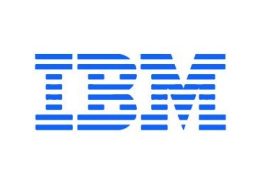by Invesco Tax & Estate team, Invesco Canada
Our final blog post in the 2021 Federal Budget series covers Sales and Excise Tax Measures.
Sales and Excise Tax Measures
GST New Housing Rebate conditions
The GST New Housing Rebate enables homebuyers to recover 36 percent of the GST paid on the purchase of a new house valued up to $350,000 up to a maximum rebate amount of $6,300. The rebate phases out for housing prices between $350,000 and $450,000. There is no GST New Housing Rebate for house prices above $450,000.
Budget 2021 proposes changes to the rebate eligibility when a new house is acquired by two or more individuals. Under the current rules, if there are two or more homebuyers, each purchaser involved must acquire the new house for use as his or her primary residence or as a primary residence of a relation. A relation is defined as an individual who is related by blood, marriage, common-law partnership or adoption, or a former spouse or former common-law partner. However, Budget 2021 proposes that purchasers (or a relation of the purchaser) will be eligible for this rebate if any one of the purchasers meets the requirement mentioned above, rather than all the purchasers.
The GST New Housing Rebate is available to:
- New homes purchased from a builder
- Owner-built homes
- Co-op housing shares
- Homes constructed on leased land
The new measures apply to home purchases made after Budget Day and construction or substantial renovation of owner-build homes if substantially completed after Budget Day.
Excise duty on vaping products
Budget 2021 proposes a new excise duty framework, starting in 2022, on vaping products to be introduced as part of the existing Excise Act, 2001, which currently applies excise duties on tobacco, wine, spirits, and cannabis products. The new duty would apply solely to vaping liquids made within Canada or imported for use in Canada. The new duty will apply to vaping liquids regardless if they contain nicotine. Cannabis-based vaping products would be explicitly exempt from this framework as they are already subject to cannabis excise duties. The flat rate would be imposed and payable at the time of packaging or importation.
Government bodies like Canada Revenue Agency (CRA) and Canada Border Services Agency (CBSA) would be responsible for administering and enforcing the new excise duty framework for vaping products.
Tax on Select Luxury Goods
Effective January 1, 2020, Budget 2021 proposes introducing a tax on the retail sale of new luxury cars and personal aircraft priced over $100,000 and boats priced over $250,000. In Canada, the tax would apply at the point of purchase if sales price excluding GST/HST would rise above the thresholds. Importations of vehicles, aircraft and boats would also be subject to the tax.
For vehicles and aircraft, the tax amount would be lesser of 10 percent of the full value of the vehicle or aircraft or 20 percent of the value above $100,000. As it pertains to boats, the tax amount would be lesser of 10 percent of the full value or 20 percent of the value above $250,000.
In Canada, the tax would generally apply at the final point of purchase. In the case of imports, the tax would be levied either at the time of importation or point of purchase in Canada following importation. The seller or the lessor would be responsible for remitting the full amount of the tax to the government. Exports will not be subject to the tax.
International Tax Measures
Base Erosion and Profit Shifting (BEPS)
BEPS refers to international tax planning arrangements used by multinational enterprises to reduce their taxes by exploiting domestic and international tax rules. Canada has accepted the new transfer pricing guidance that will allow countries to modify the application of their existing tax treaties to put in place anti-BEPS measures without having to renegotiate those treaties individually. Additionally, Budget 2021 builds on this work by proposing implementing best practices on interest deductibility and hybrid mismatch arrangements.
Interest Deductibility Limits
Several rules are proposed to be set in place to further reduce erosion of the Canadian tax base due to deductibility of interest in instances where excessive debt or interest expense takes place.
- Thin capitalization rules limit the deductibility of interest expense where the amount of debt owing to specified non-residents exceeds a 1.5-to-1 debt-to-equity ratio.
- With a few exemptions, a proposed “earnings-stripping” approach limits the amount of net interest expense that may be deducted by a corporation, trusts, partnerships and Canadian branches of non-resident taxpayers to a fixed ratio known as “tax EBITDA” (earnings before income tax, depreciation and amortization). Interest denied under the earnings-stripping rule would be carried forward for up to 20 years or back for up to 3 years (including the taxation years prior to the effective date of the rule).
- Canadian members of a group that have a ratio of net interest to tax EBITDA below the fixed ratio would generally be able to transfer the unused capacity to deduct interest to other Canadian members of the group. The group would comprise the parent company and all its subsidiaries that are fully consolidated in the parent’s audited, consolidated financial statements. This measure would apply to existing and new borrowings in taxation years that begin on or after January 1, 2023.
Hybrid Mismatch Arrangements
Hybrid mismatch arrangements are cross-border tax avoidance structures that exploit differences in the income tax treatment of business entities or financial instruments under the laws of two or more countries to produce mismatches in tax results. The two main forms of hybrid mismatch addressed in the BEPS Action Plan are:
- Deduction/non-inclusion mismatches that arise where a country allows a deduction in respect of cross-border payment, the receipt of which is not included within a reasonable period in ordinary income in the other country.
- Double deduction mismatches that arise where a tax deduction is available in two or more countries in respect of a single economic expense.
Proposed new rules in the BEPS Action Plan would neutralize a mismatch by aligning the Canadian income tax treatment with the income tax treatment in the foreign country by making hybrid mismatch arrangements non-deductible for Canadian income tax purposes to the extent that they give rise to a further deduction in another country or are not included in the ordinary income of a non-resident recipient. The same would apply vice versa.
Budget 2021 proposes to amend the Income Tax Act to eliminate the tax benefits of hybrid mismatch arrangements. These proposals will level the playing field and help ensure everyone pays their fair share. These proposals would be implemented in stages starting July 1, 2022.
Mandatory Disclosure Rules
The Canada Revenue Agency must be able to obtain timely information on arrangements that involve aggressive tax planning. Budget 2021 will launch public consultation that will address changes to the Income Tax Act’s reportable transaction rules, a new requirement to report notifiable transactions, and a new requirement for specified corporations to report uncertain tax treatments.
Tackling Tax Avoidance and Evasion
After measures introduced in 2015 to tackle tax avoidance and evasion yielded positive results, Budget 2021 proposes an additional $304.1 million over five years, starting in 2021–22, for the CRA to fund new initiatives and extend existing programs, including:
- Increasing GST/HST audits of businesses where the risk of non-compliance is the greatest
- Modernizing the CRA’s risk assessment process to prevent unwarranted and fraudulent GST/HST refund and rebate claims
- Enhancing capacity to identify tax evasion involving trusts and provide better service to executors and trustees
Action Against Money Laundering and Terrorist Financing
The Canada Revenue Agency recognizes that money laundering and terrorist financing are a threat to the security of the financial system and plays an important role in the fight against terrorist financing and money laundering in Canada. In support of this role, proposed amendments to the Income Tax Act will further address legislative gaps. Budget 2021 proposes to:
- Allow for the immediate revocation of charitable status for an organization listed as a terrorist entity
- Allow for the revocation of charitable status when a charity provides false statements for the purpose of maintaining their registration; and
- Prevent individuals with a known history of supporting terrorism from becoming a director, trustee, or similar official of a registered charity
Beneficial Ownership Transparency
Budget 2021 proposes to provide $2.1 million over two years to support the implementation of a publicly accessible corporate beneficial ownership registry by 2025.
To combat Abusive Tax Collection Avoidance Schemes, Budget 2021 proposes to introduce several amendments to the Income Tax Act to address various types of evasive planning, as well as a penalty for those who devise and promote such schemes.
To protect the competitiveness of Canadian businesses, proposed changes to the Customs Act will attempt to improve duty and tax collection on imported goods. These changes would ensure that goods are valued in a fair and consistent manner by all importers, which, in turn, would level the playing field between domestic and foreign businesses.
Non-tax specific measures
Commitment to the one million jobs initiative
Budget 2021 introduces measures to strengthen and restore the labour market and economic activity by investing in initiatives to achieve the one million jobs commitment promised last Fall.The COVID-19 pandemic created a global recession more pronounced than the global financial crisis of 2008. It is estimated that the pandemic has impacted 30 percent of the Canadian labour force (pre-pandemic), with youth, women, racialized workers, older Canadians, and low-wage workers disproportionately impacted. Small businesses have been devastated by the pandemic since they employ a larger percentage of those most impacted. Part of the plan will invest in the establishment of a Canada-wide early learning and childcare plan.
Securing more vaccines
Canada continues to secure more vaccines and maintains that it can vaccinate all willing Canadians by September 2021 by targeting the most vulnerable Canadians first, such as front-line essential workers and seniors. Bilateral agreements are in place to secure more vaccines from the Health Canada authorized suppliers.
Strengthening care for our Seniors
Budget 2021 will invest $3 billion over five years to Health Canada to improve Long Term Care Facilities standards so that safe and desirable living conditions are met. A further $90 million investment will be funnelled through Employment and Social Development Canada to launch the Age Well at Home initiative. This initiative aims at helping low-income, and vulnerable seniors access volunteers and in-home services (e.g., meal preparation, home maintenance, transportation) to enable seniors to stay at home for as long as possible.
Strengthening Canada’s Bio-manufacturing and Life Sciences Sector
A total of $2.2 billion will be invested in Canada’s life sciences and bio-manufacturing sector.
Supporting safer air travel
Budget 2021 proposes an investment of roughly $200 million for initiatives that will help improve air travel post-pandemic. Investments will be made to COVID-19 infrastructure, further advancing touchless technology and improving sanitization equipment and processes at screening checkpoints. A further $270 million will be given to the Canadian Air Transport Authority to help prevent virus transmission in Canada’s airports.
Establishment of a Canada-wide early learning and childcare system
Throughout most of Canada, the median cost of childcare continues to be a large financial burden. There is a negative downstream impact on those wanting and willing to join the workforce, disproportionately affecting single women. The Federal government will work with provincial, territorial and Indigenous governments to build a Canada-wide childcare program with the targeted goal of bringing fees down to $10 per day (with the goal of reducing the average fee for preschool care by 50% by the end of 2022), an increase in affordable childcare spaces and expanding before and after school programs, all within the next five years (by the end of 2026). In support of this initiative, an investment of $30 billion will be made over the next five years and an ongoing annual minimum investment of $9.2 billion starting in 2025-2026.
Support for students
Expanding on the previously announced six-month suspension of student loan payments, the Budget will provide $5.7 billion over the next five years in student debt interest relief for an additional year by waiving the interest accrual on Canada Student Loans and Canada Apprentice Loans until March 31, 2023.
Student debt relief will be provided through a repayment assistance program for low-income borrowers by waiving repayments for single borrowers earning $40,000 per year or less. Student borrowers from higher-income households may also benefit through a modification of the income threshold to match that of the Canada Student Grant income level, currently at $63,735. Further, there will be a cap on monthly student loan payments by reducing the percentage from 20% to 10% of household income.
Canada Student Grants are doubled for an additional two years till the end of July 2023. There will also be the extension of support for students with disabilities through enhanced grants and repayment assistance.
The Government of Canada will introduce legislation establishing a federal minimum wage of $15 per hour that will rise annually with inflation.
Investing in Canada’s entrepreneurs and small businesses
The introduction of a new Canada Recovery Hiring Program for eligible employers (Canadian-controlled private corporations, charities, individuals, and non-profits) that continue to experience declines in revenue post-pandemic via a subsidy. The subsidy would be used to increase wages for active employees or hire more staff from June 6, 2021, to November 20, 2021. Eligible employers would claim the higher of the Canada Emergency Wage Subsidy (CEWS) or the new subsidy. The estimated cost for the program will be $595 million in 2021-2022.
Work-integrated learning placements will be further enhanced through a not-for-profit organization called Mitacs that connects young workers with businesses for research and training opportunities.
Budget 2021 proposes the Canada Digital Adoption program to provide small and medium-sized businesses with support to “digitize” their businesses. The program will consist of two main streams:
- Helping small and medium-sized businesses expand through the adoption of e-commerce solutions and opportunities; and
- Offering comprehensive support to adopt digital solutions through advisory services, training, and grants for investment in technology adoption that includes access to a (tech-savvy) labour force
Accelerated expensing of up to $1.5 million of eligible investments (digital assets and intellectual property) by CCPCs made on or after Budget Day and before 2024 will be introduced.
Further support for businesses and entrepreneurs will be accessed through the following programs (to name a few):
- A $101 million investment in the Small Business and Entrepreneurship Development Program
- A $147 million investment over four years in the Women Entrepreneurship Strategy
- A $52 million investment over four years in the Innovation, Science and Economic Development Canada and the regional development agencies for the Black Entrepreneurship Program
- A provision of $87 million to Public Services and Procurement Canada over five years with an annual commitment of $18 million annually thereafter. The program will provide better support for businesses owned by racialized Canadians
- A $500 million investment over five years to expand the Industrial Research Assistance Program with a commitment of $100 million in annual support thereafter
- A $450 million investment over five years into the Venture Capital Catalyst Initiative
- Providing $21 million over five years to Global Affairs Canada for the continuation of the International Business Development Strategy for Clean Technology
- Investing $21 million over three years to remove and reduce trade barriers across Canada and amongst the provinces and territories
- A commitment from the government to engage with business stakeholders to work towards lowering the cost of credit card transaction fees
If you have any questions about the Budget, feel free to contact us for further information.
This post was first published at the official blog of Invesco Canada.















